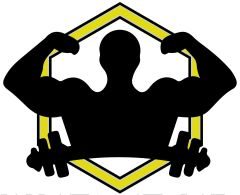What is it?
Plant based protein is protein sourced from plants. Obviously. The main sources you’ll find in vegan protein are soybean, hemp seeds, brown rice, pea, pumpkin seeds, sunflower seeds, quinoa or fava bean to name a few. This makes the protein vegan and therefore different to the traditional whey. If you want to avoid animal based protein sources then plant protein is perfect for you as it’s absorbed quickly and easily digested. It also tends to contain less additives.
What’s the nutritional difference to whey?
Obviously if you are vegan, your choice is easy but if you’re not, you may want to know how plant protein stands up against whey. Well whey is classed as a “complete” protein because it contains all 9 essential amino acids (amino’s that cant be created by our bodies and must be consumed via diet) however, plant based protein is often incomplete and missing key amino’s. Plant based protein often contains less BCAAs too. Supplement companies often create vegan blends to mix ingredients to try and create a blend that contains the 9 essential amino acids so a vegan blend is often better than protein form just one source.
Another key difference is that the bioavailability (the amount the of nutrients the body will actually absorb) of plant based protein is 60-80% whereas whey has consistently been shown to be above 90%.
One area vegan protein does beat whey is due to the fact it typically digests easier so is good for individuals with digestive issues.
So I’m better of sticking to whey?
Nutritionally speaking yes, but protein is protein and consuming plant protein will still bring the main benefits that come along with consuming it and the difference is arguably minimal as long as the protein is of good quality.
So which is best for me?
Pea: Made from yellow split peas, this form of protein is largely considered the “best” plant based protein as it’s high in BCAAs and has actually yielded similar results where tested compared against whey. Unlike whey, pea protein is not a complete protein however.
Hemp: Average in terms of protein content but low in the amino Lysine which promotes the use of fatty acids for energy. High in fibre, magnesium, zinc, iron and omega-3 fatty oils. Not a complete protein.
Soy: Soy is one of the few complete plant proteins, meaning it does contain all 9 essential amino acids, however it is low on some so “complete” can be considered to be in inverted commas. Soy has a very high protein content and is high in BCAAs.
Brown Rice: Another source of plant protein that struggles to provide enough Lysine, but it is high in BCAAs in general. One of the cheaper sources of plant protein but a good protein content. No a complete protein.
Sunflower: Low in terms of protein content and low in terms of Lysine but it has a good amino profile otherwise.
Pumpkin: Average in terms of protein, it is low in a few amino’s (again, including Lysine). High in minerals and very nutritious.
Blends: As plant proteins are not complete, supplement companies will blend them to ensure the right balance of amino acids are provided.
Although pea is often seen as the strongest performer in building muscle, it is not complete so does need to be blended with another source so, here we have to give a fluffy answer. It really is personal preference. People often opt for vegan protein due to dietary requirements such as needing lactose free supplements and it is no different with the specific types of vegan protein in that you need to read the label carefully as some will contain soy or gluten. Even pea protein can all cause issues to an individual sensitive to the ingredients.
